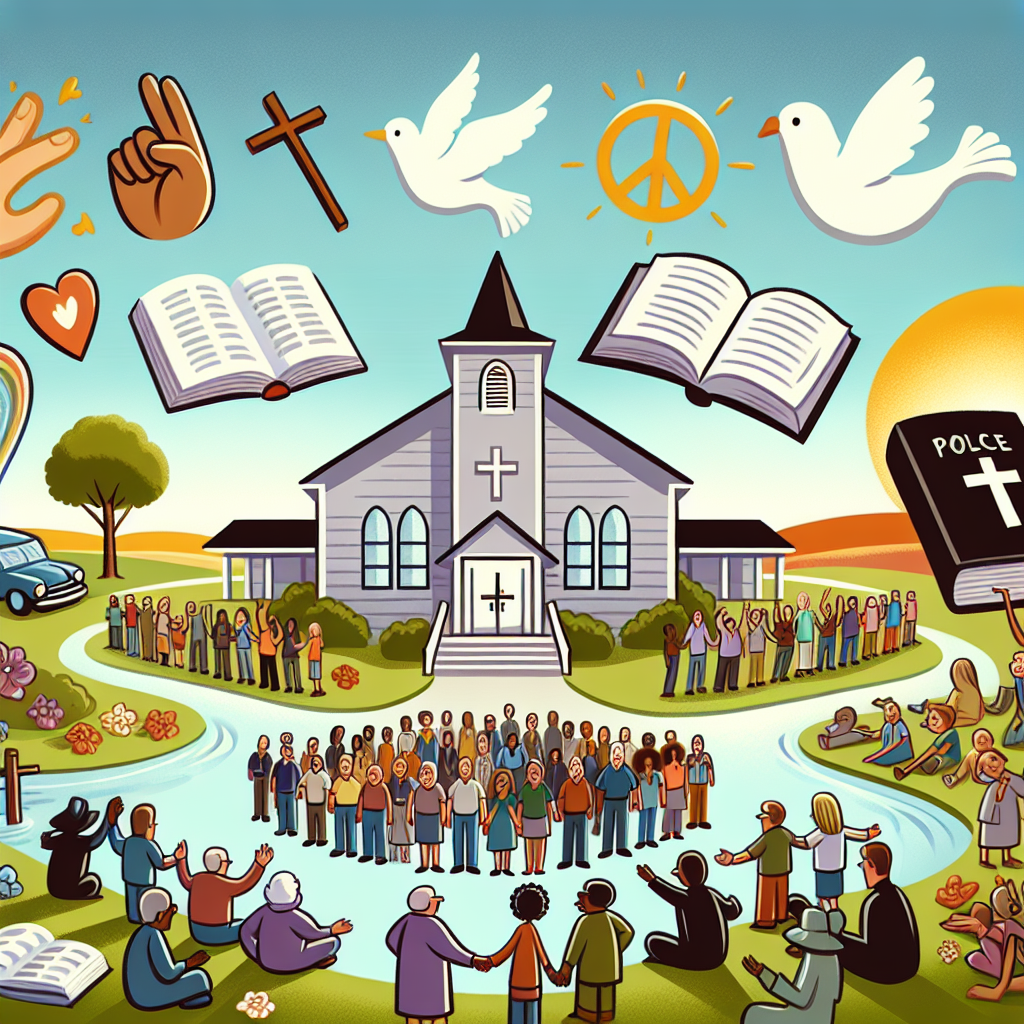Southern Baptists Condemn IVF Amid Contentious Meeting on Women Pastors
The Southern Baptist Convention, the largest Protestant denomination in the U.S., voted to condemn in vitro fertilization while endorsing alternative fertility treatments. The meeting also narrowly missed banning women as pastors. The resolution emphasized the sanctity of embryos, influenced by recent political and legal changes post-Roe v. Wade.

The Southern Baptist Convention on Wednesday voted at its annual meeting to condemn the use of in vitro fertilization and commend its congregants who use alternative fertility therapies or adopt frozen embryos. Earlier at the meeting, a proposed amendment to the church's constitution that would have banned women as pastors fell just short of the two-thirds majority vote it needed to pass.
With the vote on the use of in vitro fertilization, or IVF, the largest Protestant denomination in the U.S. weighed in on an issue that conservatives across the U.S. have seen can have political pitfalls in the volatile landscape created by the overturning of Roe v. Wade two years ago. The IVF resolution before the thousands of leaders gathered in Indianapolis noted the searing pain infertile couples encounter, but made plain that "not all technological means of assisting human reproduction are equally God-honoring or morally justified."
The SBC is the largest Protestant denomination in the U.S., with over 50,000 churches and over 14 million faithful, and has become a political force in recent decades. IVF involves combining eggs and sperm in a laboratory dish to create an embryo for couples having difficulty conceiving.
The resolution states that the IVF process routinely creates more embryos than can reasonably be implanted and that naturally leads to the ultimate destruction of hundreds of thousands of frozen embryos, which the church considers sacred life. The resolution called on "Southern Baptists to reaffirm the unconditional value and right to life of every human being, including those in an embryonic stage, and to only utilize reproductive technologies consistent with that affirmation."
In February, the Alabama Supreme Court ruled that frozen embryos should be considered children. The ruling arose from lawsuits by three families against Alabama fertility procedure providers accused of failing to properly safeguard frozen embryos, resulting in their destruction when a patient improperly accessed them. The court ruling was based on an amendment to the Alabama state constitution approved by voters in 2018 that made it official policy to uphold "the sanctity of unborn life and the rights of unborn children." The court ruling left unclear how to legally store, transport and use embryos.
Democrats portrayed Alabama's all-Republican high court as bent on further restricting women's ability to make choices about reproduction following the U.S. Supreme Court ruling that toppled Roe, abolishing women's constitutional right to abortion. Republicans faced backlash nationwide, even as some particularly conservative members of the party continued to question IVF procedures.
In Alabama, the Republican-led state legislature passed measures aimed at protecting IVF providers from both criminal charges and civil lawsuits, and the Republican governor quickly signed them into law, prompting Alabama providers who had halted the IVF procedure following the court ruling to resume offering the treatment. In Washington, Republican senators blocked Democrats' attempt to guarantee access to IVF treatments, saying the proposal went too far.
In May, Brent Leatherwood, head of the Southern Baptist Convention's Ethics and Religious Liberty Commission, wrote U.S. senators to urge more robust oversight of the IVF process. "A human embryo is a life. This life is as deserving of protection and all the standards of care we would give to a child or an adult," Leatherwood wrote. "In the post-Roe moment we find ourselves in, we must make the most of this opportunity to stand for life in all its forms."
FEMALE PASTORS The proposed constitutional change banning women pastors, known as the Law Amendment, had been approved during last year's annual meeting. By church rules, any such change must be approved at two consecutive annual meetings, and this year it was approved by 61.45% of church leaders who voted - short of the 2/3 majority required.
The denomination has in recent annual meetings voted that individual churches that have female leaders were no longer in "friendly cooperation" with the organization, citing the denomination's doctrine and scriptures as indicating that only men can lead a church. The over 10,000 church leaders - known as "messengers" - attending the meeting and voting on an array of issues, fell just short of officially changing the SBC's constitution to assert that a church can only employ "men as any kind of pastor or elder as qualified by the scripture."
Individual Baptist churches are largely autonomous, typically locally own their own facilities and make their own decisions on how to worship.
(This story has not been edited by Devdiscourse staff and is auto-generated from a syndicated feed.)
ALSO READ
BJP's Historic Win: A New Era in Odisha Politics
Delhi Politics Heat Up: BJP Slams AAP Over Alleged Corruption
Swaraj Criticizes Kejriwal's Appeasement Politics Amid Election Stir
Abhishek Banerjee's Bold Stand Against Divisive Politics in 2024
Karnataka Politics: Kharge Fights Back Amidst Controversy










